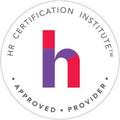Generative AI: What HR Leaders Should Be Doing Now
The Next Practices Weekly call series has become a well-attended and wide-ranging discussion for HR leaders each Thursday at 11am ET / 8am PT. On this week's call, i4cp Senior Research Analyst Tom Stone hosted i4p colleague Judy Albers, Director of Research Enablement, for a discussion of AI and especially generative AI and its impact on, and importance for, the HR field. Here are some highlights from the call:
- An informal chat-based polling of call participants not surprisingly found most indicated they were at most experimenting with generative AI tools such as ChatGPT or others, with very few indicating much experience, expertise, or work use cases yet.
- Albers walked through definitions with examples of three types of AI: Machine Learning (e.g., Netflix recommendations), Deep Learning (e.g., Self-driving cars), and Generative AI (e.g., ChatGPT). Download the slides above for the definitions of each.
- Tactically, we can expect generative AI to provide significant productivity gains in many areas of knowledge work, in part through the automation of mundane tasks. This could also lead eventually to a reduction in worker burnout and an increase in worker engagement.
- Organizations will vary, however, in how they balance the gains they could see from the standard three elements of productivity: time, cost, and quality. Some will focus on cost savings by having fewer employees in certain roles, but others will seek more benefit from production happening faster, and/or the quality of goods and services produced being increased. Some organizations will see all three benefits, striking some degree of balance in reducing costs, increasing speed, and improving quality.
- Some of these benefits will arise from more strategic uses of AI, that is those that impact harder-to-solve problems. Albers gave examples such as the use of AI to improve internal mobility driven by skills data, enabling more data-driven decisions, and better handling of intractable culture issues or compliance issues.
- Albers shared ample advice for what Chief People Officers need to be doing now, both in their role as head of HR and in their role as people advisor to the C-Suite. Download the slides above for the details.
- She also shared similar recommendations for HRBPs and HR professionals who work in each Center of Excellence within HR (again, see the slides for details).
- Albers review six primary risks of using AI:
- Bias
- Data leakage
- Transparency
- Over-reliance on AI
- Inadequate testing
- Bad actors
- A recent i4cp survey of over 1,500 HR professionals found that it is still early days for HR when it comes to using generative AI:
- 5% are using it in certain functions
- 17% are experimenting
- 33% are preparing to experiment
- 34% have no plans; not ready
- In addition, 52% said they have no or low confidence in HR's readiness to contribute to AI strategy; 32% said their leaders are not communicating about AI; and 29% said HR is not involved in the governance of AI or advanced automation decisions.








